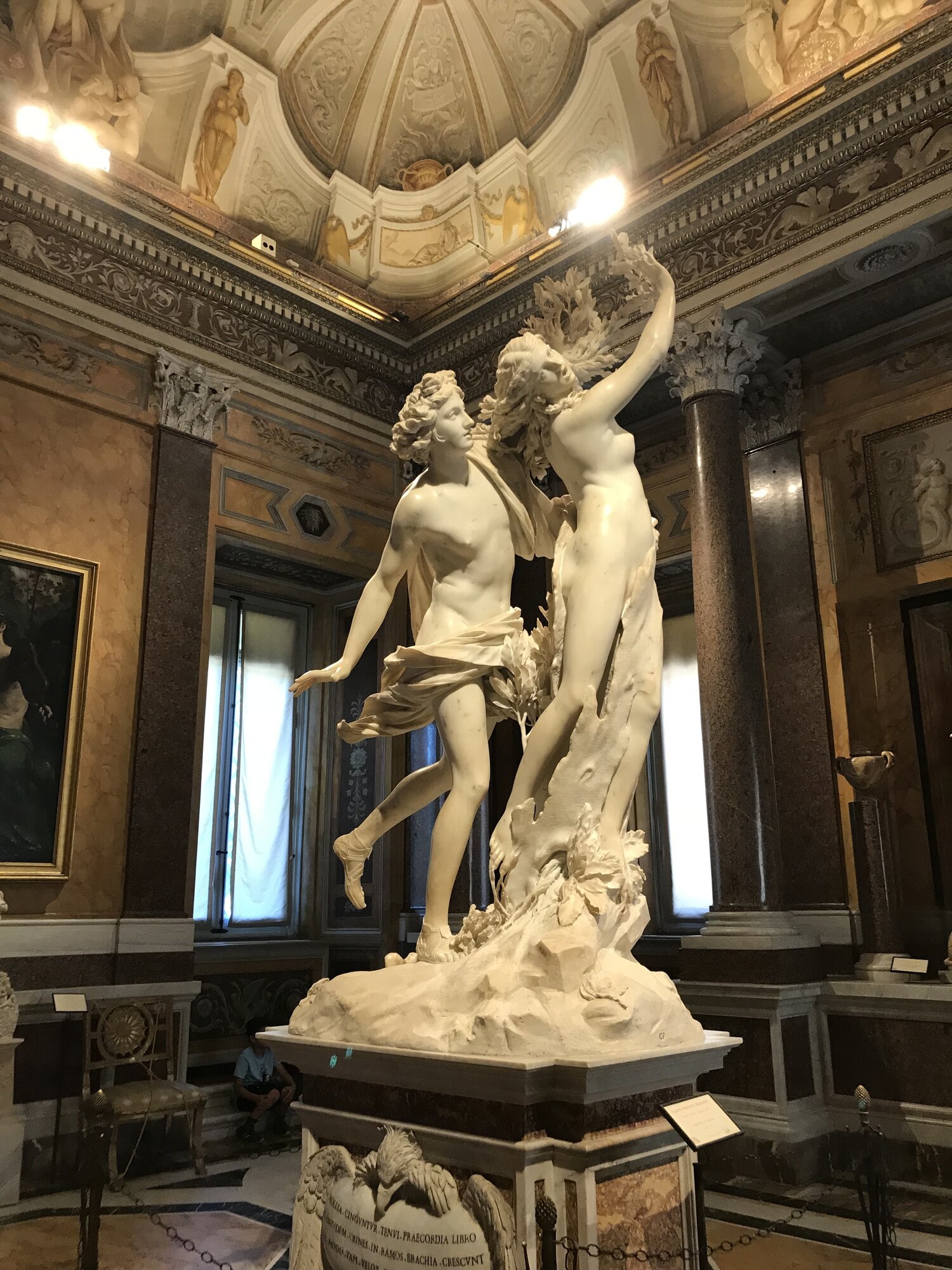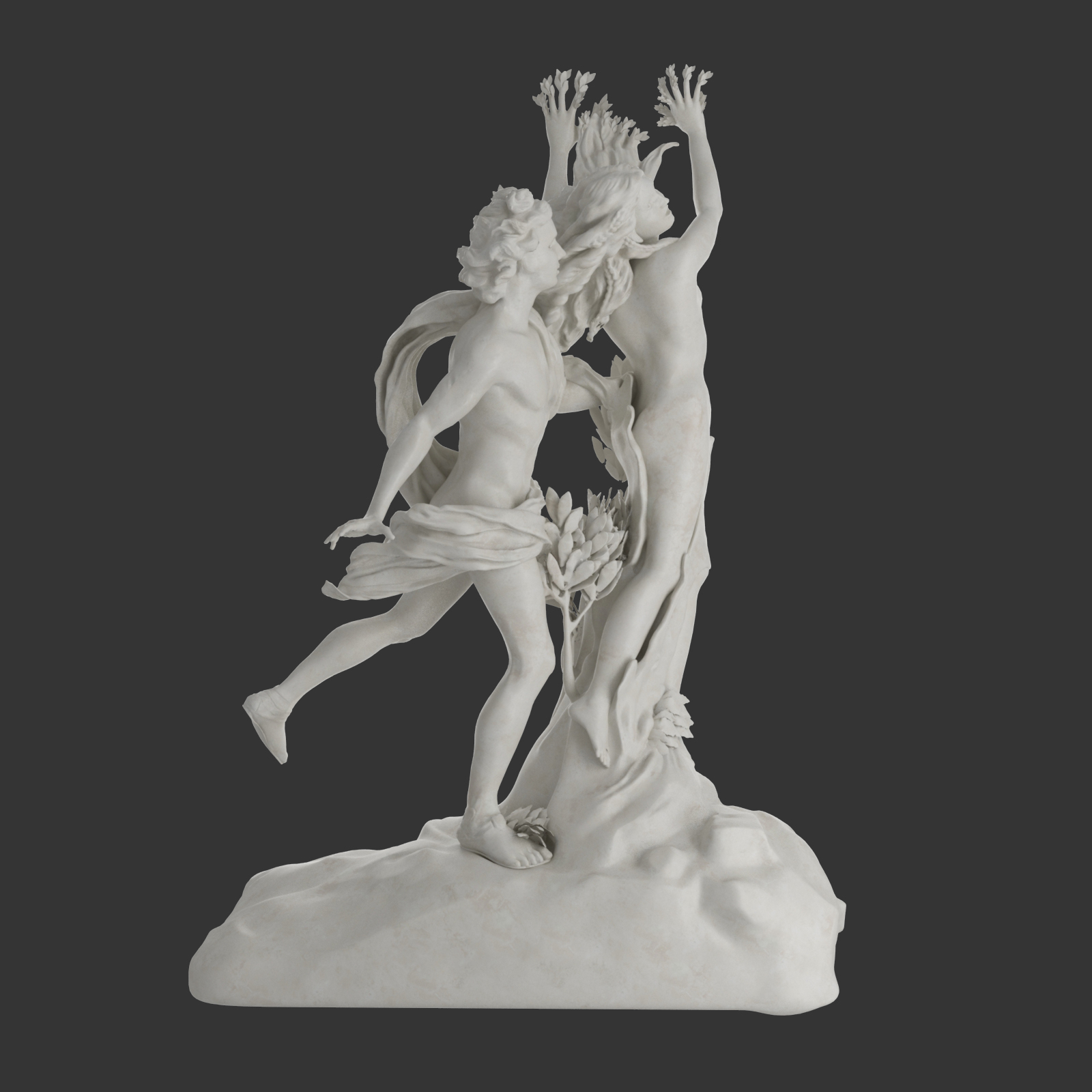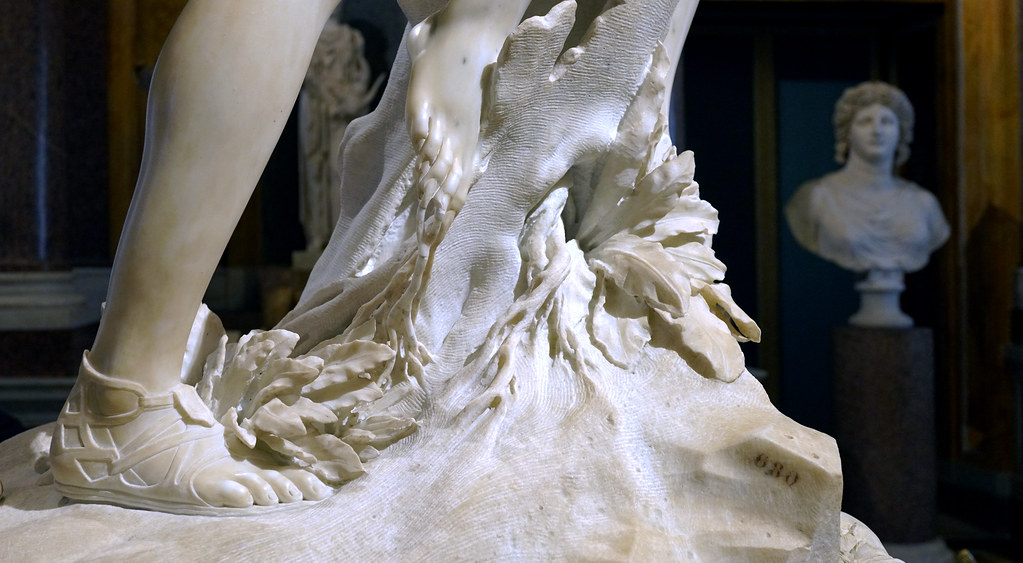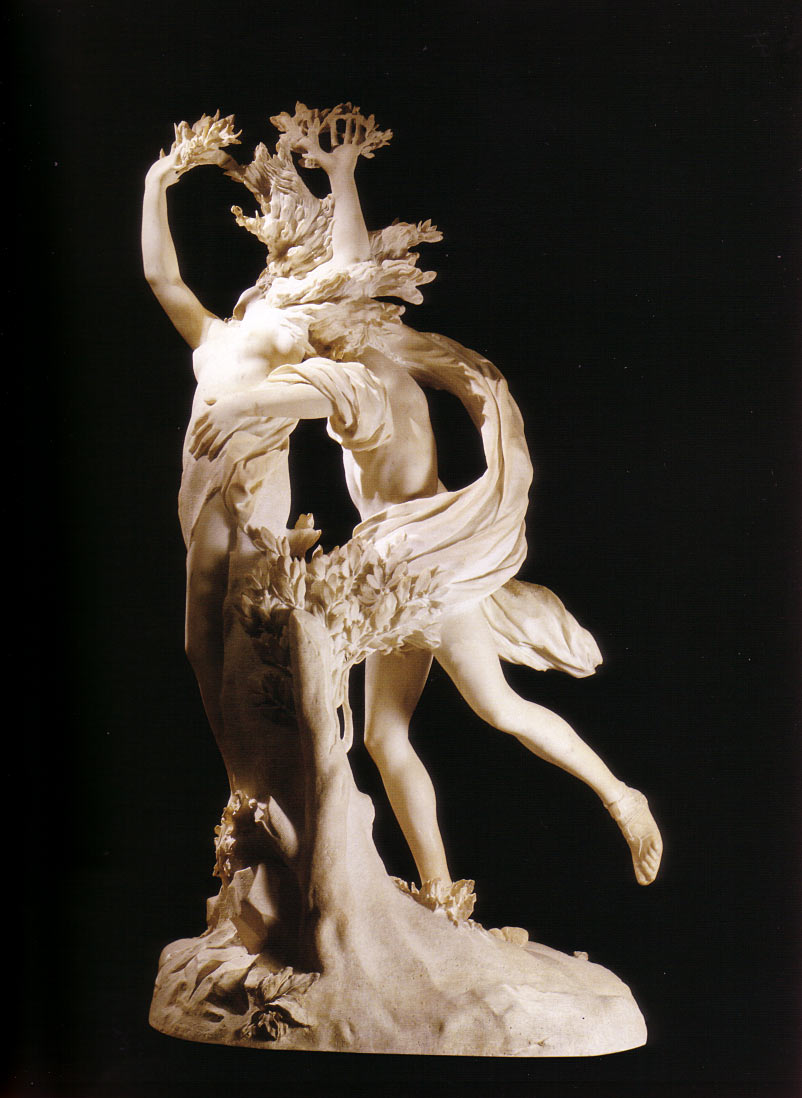
Bernini Apollo And Daphne Bronze Life Size Sculpture
Apollo and Daphne (1625) by Bernini. Although retold in Ovid's book, the story of these two characters originally came from Greek and Roman mythology. Thanks to the advances in printing technology during the Renaissance period, ancient texts and myths started to emerge and be published, and the rise in the popularity of these stories resulted in the commissioning of works that portrayed them.

Apollo and Daphne was created by Gian Lorenzo Bernini Gian Lorenzo Bernini, Daphne, Vincent Van
Gian Lorenzo Bernini, Apollo and Daphne, 1622-25, Carrara marble, 243 cm high (Galleria Borghese, Rome)A conversation with Dr. Beth Harris and Dr. Steven Zuc.

Apollo and Daphne by gianlorenzo Bernini is without a doubt the most amazing sculpture ever
Gian Lorenzo Bernini, Apollo and Daphne, 1622-1625, Galleria Borghese, Rome, Italy. Photograph by Steven Zucker, Smart History in December 2016 via Flickr. (CC-BY-NC-SA-2.0). The Transformation of Daphne. Freeze-framed by Bernini is the very moment of Daphne's transformation. The bark of a tree emerges above ground near the branches and.

Apollo and Daphne at the Galleria Statue Rome, Apollo and Daphne Statue, Rome Statue
The Apollo and Daphne myth dates back to Greek mythology. It is also the inspiration for the stunning baroque marble Apollo and Daphne Bernini sculpture. The story can be found in the Apollo and Daphne Ovid verses in Book 1 of the famous Metamorphosis. Despite its ancient origins, the myth is very much one that has relevance to this day.

Gallery Gathers a Full House of Bernini Masterpieces The New York Times
Roman, Apollo and Daphne, c. 62-79 A.D., fresco from South wall of Casa dell'Efebo, Pompeii showing Apollo holding a sprig of laurel, while Daphne is perhaps dancing. It likely reflects a pre-Ovidian source. Apollo and Daphne is a transformation myth. No written or artistic versions survive from ancient Greek mythology, so it is likely Hellenistic in origin.

Comentario exhaustivo (IV) “Apolo y Dafne”, Gian Lorenzo Bernini El Estudio del Pintor
Apollo and Daphne is a life-sized marble sculpture by the Italian artist Gian Lorenzo Bernini, which was executed between 1622 and 1625.It is regarded as one of the artistic marvels of the Baroque age. The statue is housed in the Galleria Borghese in Rome, along with several other examples of the artist's most important early works. The sculpture depicts the climax of the story of Apollo and.

Apollo and Daphne — Art History Perspectives
Gian Lorenzo Bernini, Apollo and Daphne. by Dr. Beth Harris and Dr. Steven Zucker. Gian Lorenzo Bernini, Apollo and Daphne, 1622-25, Carrera marble, 243 cm high (Galleria Borghese, Rome) A conversation with Dr. Beth Harris and Dr. Steven Zucker. More Smarthistory images….

Galleria Gian Lorenzo Bernini, Apollo und Daphne, Detail a photo on Flickriver
Bernini portrays this moment at the height of the action; Apollo has just touched Daphne's torso, and she is transforming into a tree. This snapshot is able to tell the entire story. The look of longing on Apollo's face is still apparent, both of them appear to still be moving, as if in mid-chase, and the transformative depiction of Daphne.

Le Bernin Apollon et Daphné Bernini Galerie Rome
Apollo and Daphne is one of Bernini's first major Commissions by Cardinal Scipione Borghese. Cardinal Borghese was one of the most powerful, prominent and extravagantly wealthy religious persons in Rome. A patron who wanted the best artists to work for him. Among them there was a young Bernini who started to work on this sculpture in 1622.
pattsart Apollo and Daphne
Bernini Gian Lorenzo. The subjet of the sculptural group is Ovid's tale from his Metamorphoses (I, 450-567), where he tells of Apollo, on whom Eros takes revenge by shooting him with an arrow made of gold, the noblest metal, making him fall for the nymph Daphne, a disciple of Diana. The nymph, instead, is pierced by a dart made of lowly lead.

3d statue apollo daphne bernini
Apollo and Daphne. Gian Lorenzo Bernini. This is the sculpture that secured the young Bernini international fame for its breathtaking beauty, innovative composition, and technical virtuosity. Drama: Like the Rape of Persephone, in Apollo and Daphne Bernini depicts the most dramatic scene in the story. In a virtuoso feat of craftsmanship Bernini.

TRAGIC LOVE MONTH 3 Apollo and Daphne, by Gian Lorenzo Bernini (1625) — SEVENCUT
In this sculpture, Bernini depicts the mythological drama that occurs between Apollo, god of music and poetry, and Daphne, a virginal nymph. The artist was likely inspired by the classical sculpture Apollo Belvedere (circa 2nd century AD) as well as the ancient Roman poet Ovid's rendition of the myth.In Ovid's telling, the story begins with a pissing contest between two male gods: After.

Bernini, Apollo and Daphne (detail) a photo on Flickriver
Apollo and Daphne's sculpture was ordered after Borghese transferred the earlier work of his patronage, Bernini's Pluto and Persephone, to Cardinal Ludovico Ludovisi. Most of the work was done in 1622-23, but there was a pause, most probably for work on the sculpture of David, which interrupted its completion, and the artist did not finish.

Famous art sculptures marble Apollo and Daphne statue for saleYouFine Sculpture
When Apollo reached out to touch Daphne Peneus turned Daphne into a laurel tree. In doing this, Daphne could forever protect her maidenhood, and Apollo, still very much in love, made laurel leaves one of his symbols. The moment in the story where Apollo touches Daphne is the moment portrayed in Bernini's statue.

Apollo and Daphne Bernini Gian Lorenzo
The life-sized Baroque marble sculpture by Bernini depicts the climax of the story of Apollo and Daphne (Phoebus and Daphne) in Ovid's Metamorphoses. It shows Apollo finally catching up to Daphne, just as she is being transformed into a laurel tree. Apollo clutches Daphne's hip, pursuing her as she flees to escape him. Apollo wears a laurel.

Apollo and Daphne Experiencing The Divine
Other articles where Apollo and Daphne is discussed: Gian Lorenzo Bernini: Early years:.to the hallucinatory vision of Apollo and Daphne (1622-24), which was intended to be viewed from one spot as if it were a relief. In his David (1623-24), Bernini depicts the figure casting a stone at an unseen adversary. Several portrait busts that Bernini executed during this period, including that…